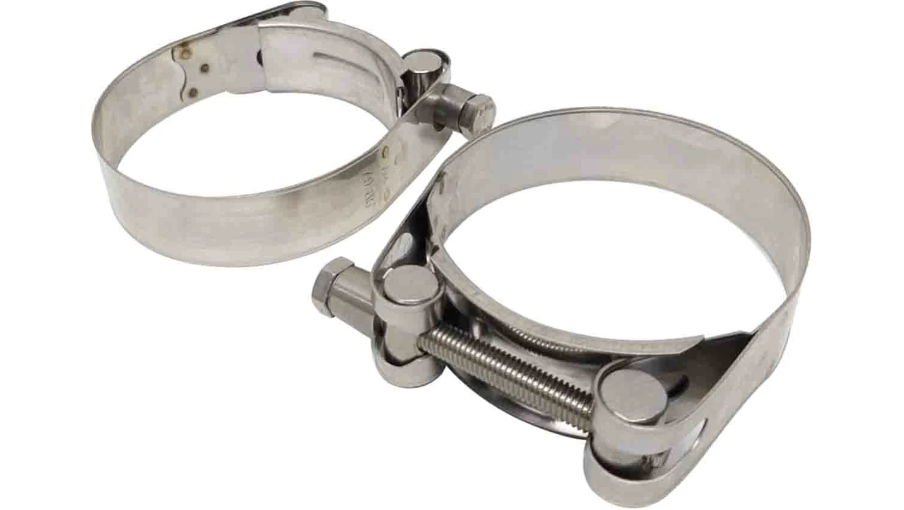Hose clamps are an important part of many households. They can be used for various purposes, from fixing a hose to attaching a hose to a faucet. However, it is important to have the right hose clamp for the job, and not all hose clamps are created equal. This post will elaborate on the different types of hose clamps and help you find the perfect one for your needs!
The Standard Worm-Drive Clamp
This is the classic hose clamp that you’re probably most familiar with. It consists of a band, often made of galvanised steel, that winds around the hose and attaches to a screw in the centre. The screw is tightened to create tension on the band, holding everything together snugly.
Worm-drive hose clamps are available in various sizes depending on the application. They can be used for high and low-pressure applications and accommodate hoses of various diameters.
The T-Bolt Hose Clamp
The T-bolt hose clamp is similar to the worm-drive hose clamp but with one key difference: instead of a screw in the centre, it has a T-shaped bolt. This design makes it easier to tighten and loosen the clamp without removing the hose first.
T-bolt hose clamps are often used in applications where there is frequently a need to adjust or remove the hose, such as in automotive cooling systems. They are also available in various sizes to fit different hoses and applications.
The Ear Hose Clamp
The ear hose clamp is a type of worm-drive hose clamp but with one key difference: instead of a screw, it has two “ears” that are tightened together with a nut and bolt. This design makes it easier to install than other hose clamps since you don’t have to thread the hose onto a screw.
The Spring Hose Clamp
The spring hose clamp is a type of hose clamp that uses a spring instead of a band to create tension. This design makes it more convenient to install and remove than other types of hose clamps since you don’t have to thread the hose onto a screw or tighten/loosen a nut and bolt.
The Oetiker Hose Clamp
The Oetiker hose clamp is a type of ear hose clamp but with one key difference: instead of two “ears,” it has a single “ear” that is tightened with a nut and bolt. This design makes it easier to install than other hose clamps since you don’t have to thread the hose onto a screw.
The Band Hose Clamp
The band hose clamp is similar to the worm-drive clamp but without the screw in the centre. This design makes it more convenient to install and remove than other types of hose clamps since you don’t have to thread the hose onto a screw or tighten/loosen a nut and bolt.
The Quick Release Hose Clamp
The quick-release hose clamp is a type of hose clamp that uses a lever to tighten and loosen the clamp without removing the hose first. This design makes it easier to adjust than other types of hose clamps.
The Standard Worm Gear Clamp
This hose clamp is probably the most common out there. It’s a simple design that gets the job done, but it isn’t without its drawbacks. The biggest downside to this type of hose clamp is that it can be difficult to adjust once installed. This can be a problem if you need to repair it in the middle of a project.
The Stainless Steel Hose Clamp
If you need a hose clamp that will stand up to corrosion, you need a stainless steel hose clamp. These clamps are made from rust-resistant materials and can withstand exposure to salt water and other harsh chemicals.
So, there you have it. Ten different types of hose clamps can be used for various applications. No matter your needs, there’s a hose clamp out there that’s perfect for the job. So, get out there and start clamping!
You may also like
-
Powder Coating Thickness Standards: System Aluminium Windows Manufacturers Guide
-
Why Fairy Tale Costumes Shape Meaningful Childhood Success
-
Legal Marketing Services: What They Are and Why Every Law Firm Needs Them
-
IPO Investing: What Happens Before, During, and After a Public Issue
-
Sustainable Kraft Packaging Solutions From Our Factory

